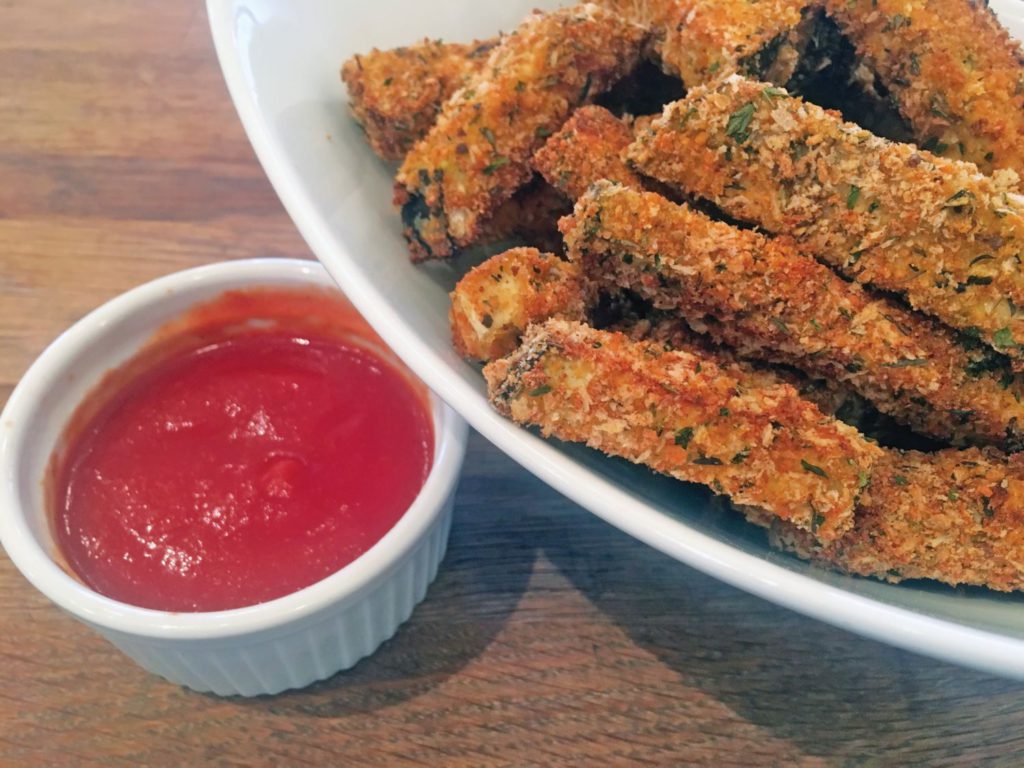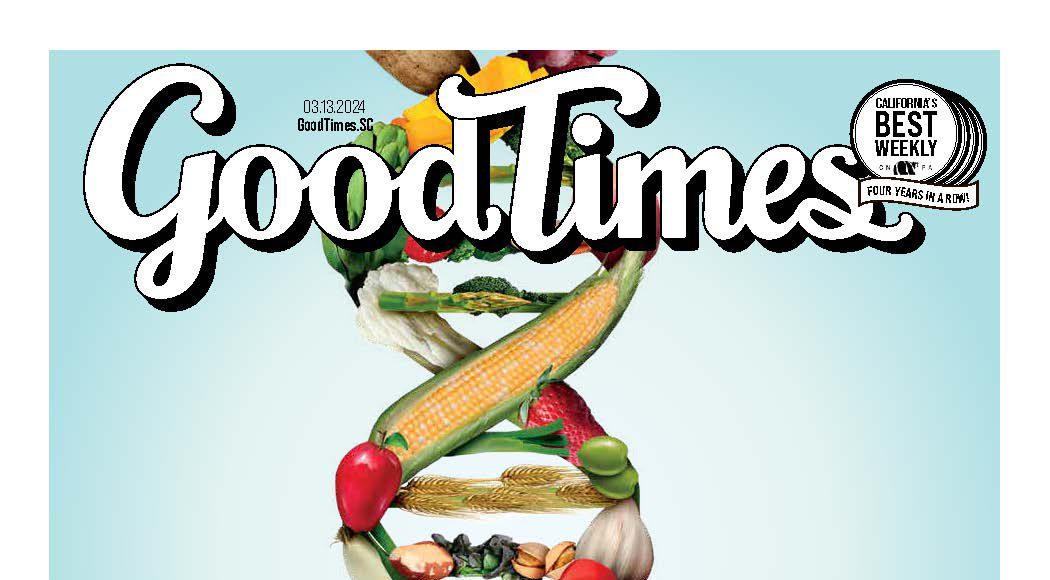My grandmother always said not to diet, what good could come of a word where the first three letters are d i e?
The “die” in diet—or historically low success rate—does not stop more than half of Americans from attempting to change the way they eat. We love a good diet, and these days with good reason. The American health-scape is in crisis and improving our eating habits is a sound response. But our reasons for eating extend far beyond weight loss.
Dietary choices revolve around factors like affordability, flavor and perceived health advantages. Once established, these habits can be difficult to alter. Moreover, navigating the steady stream of seemingly conflicting diet news poses a significant challenge, making it hard to know what truly constitutes a healthy diet.
HOW THE ACT OF EATING HAS
TURNED CONTROVERSIAL
In 2021, docuseries producer Louie Psihoyos decided to address the modern nutrition conundrum from a fresh angle. He wanted to study the effects of a plant-based diet on identical twins by assigning one to eat vegan while the other stayed omnivore. In an effort to make this experiment as legitimate as possible, he reached out to Stanford Medical School to help design the study.
Intrigued by the idea of working with twins as a way to minimize variables like age and genetic factors, Stanford study senior author Christopher Gardner, Ph.D. explains “Louie didn’t know how this could/should be done. We brainstormed some ideas and when it became clear that we could likely form a productive collaboration and conduct a legitimate research study, we moved forward.”
Contrasting these two dietary approaches may seem random, yet vegetarianism in its multiple versions has gained considerable attention in recent years. While vegetarians avoid meat and seafood, vegans eschew all animal products. Meanwhile, omnivores embrace a diet that encompasses the widest range of food categories, most closely resembling the standard American diet.
According to a 2023 study, public interest in dietary habits is growing in time with the obesity epidemic and related disease rates. In this sea of confusion, one thing is clear: the omnivore approach as we know it isn’t working.
Dr. Gardner, along with co-authors Matthew Landry, Ph.D., and Catherine Ward, Ph.D., collaborated to design the study they called “Cardiometabolic Effects of Omnivorous vs. Vegan Diets in Identical Twins.” It was conducted from May through June 2022, during which time 22 sets of identical twins were randomly split into groups that would determine their food choices for the next eight weeks.
While both eating plans were as comparable as possible calorically and nutritionally, the omnivore diet was most similar to participant pre-study eating habits. Both were rich in vegetables and whole grains, but one group included a moderate amount of meat while the other followed a strict plant-based regimen.
Even though the food was flavor-optimized (no one was force-fed tofu), it’s a big deal to overhaul your normal eating habits for two months with no meat, no dairy and no exceptions. If you watched the docuseries, you may remember the range of emotions both before and during the big reveal, during which twins were randomly assigned to their groups.
Beforehand some participants were curious, some were “fine with going vegan,” while others waited in what was hopefully mock terror to open the slip of paper assigning their group.
One participant, Aleksandra Shai Chai, told the Washington Post that she needed a moment to process the idea that she would be stuck eating a vegan diet for eight weeks. She hoped hers would say “omnivore.”
Instead, it said “vegan.” Her twin sister, Mariya Foster, would eat a diet of meat and vegetables, while Shai Chai replaced her favorite foods—bacon, sushi and steak—with tofu, beans and vegetables.
During the initial four weeks, both groups received pre-made meals and dietary guidelines, which transitioned to self-cooked meals for the subsequent four weeks. Throughout the study, a registered dietitian was available for guidance.
The results are significant. After the eight-week period, participants adhering to the vegan diet exhibited lower insulin levels, reduced weight and diminished lipoprotein cholesterol levels, associated with cardiovascular risks.
“The findings suggest that a healthy plant-based diet confers significant cardiometabolic benefits compared to a healthy omnivorous diet,” the researchers concluded.
While Aleksandra Shai Chai says she didn’t love the diet, upon learning the study’s results she felt thankful that she had briefly changed her eating habits.
Excited about the global exposure the documentary provided, Landry plans to focus on identifying the best diets for chronic disease prevention, with an emphasis on promoting the holistic benefits of plant-based diets on overall well-being and health.

Problem solved?
Behavioral psychologists will confirm knowing what to do has little effect on lasting habit change. What looks good on paper seldom evolves into real-life practice long term. For many people, the idea of giving up meat feels like losing a slice of Americana. Can you imagine life without barbecue?
Or without sushi. Shai Chai reported that after four weeks of a vegan diet, she had more energy and slept better. Still, she missed her favorite foods. While some participants continued to follow a vegan diet after the study concluded in July 2022, Shai Chai said she immediately started eating sushi again—which she said tasted better than ever.
But she hasn’t completely reverted to her pre-vegan days. She says she is more mindful of eating healthily and has developed new meal ideas.
Short of a health goal or diagnosis, changing lifelong eating habits usually takes an aha moment, and that’s where the study authors really got it right. The docuseries portrayed a diverse group of people, which increases relatability among the audience. And the changes were both challenging and revealing.
This opportunity to get a close-up look at such a personal process gave viewers a better understanding of what to expect, and more importantly, what transitioning to plant-based eating entails.
Twins Study Backlash
In the complicated world of nutrition, not all experts are on the same page. There is vast and fervent disagreement about what constitutes a healthy diet. So naturally, there has been some backlash against the Stanford study, including by Oprah-level nutrition experts like Drs. Mark Hyman and Peter Attia.
Dr. Attia, an omnivore advocate and longevity expert went straight for the jugular with his recent article, “A study comparing the effects of vegan and omnivorous diets fails Science 101.”In it, he accuses the authors of promoting plant-based diets as the solution to all of the health woes of modern society, yet in doing so commits a “categorical failure to isolate and test a specific independent variable–which, as emphasized in any sixth-grade science class, is perhaps the most basic requirement for hypothesis testing.”
He maintains that the study didn’t continue for long enough to reveal whether the vegan dieters would stick to their new eating habits, especially since their self-reported enjoyment of the food ranked lower than the omnivore twins.
Dr. Hyman, although not vegan, is known as a plant-based food advocate. Yet, he criticizes the absence of important body composition markers, which he says were not reported in the study.
In a recent podcast, The Doctor’s Farmacy,, Why the Vegan Twin Study Got it Wrong, he claims that “somehow the authors didn’t seem inclined to want to publish” some of the most important findings of the study because they contradicted their point of view.
These contractions are surprising to no one who follows nutrition news. US News and World Report conducts an annual survey of popular diets—30 in all—each with its own unique menus and guidelines.
Some critics of the twin study assume the authors had a hidden agenda. The researchers are accused of not telling the whole story, “cherry picking” the facts.
Good Times caught up with lead researcher Christopher Gardner to ask his response to criticisms from influencers like Mark Hyman and Peter Attia who question the study methodology. “We are disappointed that these two critics didn’t reach out to us to discuss their criticisms before publishing them,” Gardner responded.
“The majority can be easily addressed. It is unfortunate that their approach contributed to, and perpetuates, what seems like a lack of consensus and controversy on nutrition topics. I find that once most of these issues are put in the proper context and discussed openly, there is far more consensus than controversy.”

Are the criticisms misdirected?
Dr. Attia and others have criticized the Stanford twin study for the eight-week timeline, which may be too short to assess long term adherence. His article says it takes more than eight weeks to adapt to the new diet pattern—“acquire new tastes, learn new recipes, and so on.”
“The cost of the study would skyrocket if you kept following each study participant for months or years to find out how long they maintained the diet change,” said Gardner. “For LDL-cholesterol and most of the cardiometabolic risk factors we measured, eight weeks was more than enough.”
The study was designed to answer a specific set of questions rather than addressing every facet of the dietary concern—i.e. weight loss, blood glucose levels, permanent behavior modifications.
“A study duration needs to be of sufficient duration to see a change in the primary study outcomes,” said Gardner. “The primary outcome (as indicated in advance and registered on ClinicalTrials.Gov) was LDL-cholesterol.
“When someone changes from one stable diet pattern to another stable diet pattern, changes in blood cholesterol maximize and then restabilize after about two weeks. Further change is negligible after those two weeks,” continued Gardner. “The same can be said for blood pressure and glucose. For LDL-cholesterol, and most of the cardiometabolic risk factors we measured, eight weeks was MORE than enough.”
Which leads us back to the number one goal for most dietary changes: What about weight loss?
To this point, the researcher advises weight loss to be much longer—six months minimum but preferably a year or more. Weight loss is typically rapid for about three months, then tapers off until six months, and then typically restabilizes. Or for some people this is the start of weight regain.
Carnivorous critics of “You Are What You Eat” have dismissed it as vegan propaganda. Others point out that the study received partial funding from Kyle Vogt, a vegan tech entrepreneur and executive director of the Netflix series.
However, these funding sources don’t undermine the study’s scientific integrity. According to Walter Willett, a professor at Harvard’s school of public health, the study was well-conducted, with both vegan and omnivore diets being notably healthy.
“There is no body of evidence that conflicts with the finding that a healthy plant-based, vegan diet as implemented in this study, is better than a typical omnivore diet,” Willett said.
Clearly there’s more to a vegan lifestyle than eight weeks without meat. And more than one reason to swing vegan.
Shifting toward sustainability
In the Netflix series, vegan advocates passionately highlight the adverse environmental impacts of meat and dairy production, including climate change, deforestation and animal abuse. While this has been labeled vegan propaganda by some, these claims are sadly spot on.
Meat, especially beef, is by far the food sector’s biggest greenhouse gas emitter, and no solution to these emissions exists that would offer significant reductions—except scaling down meat production.
The impacts of animal products on the environment markedly exceed those of plant-based alternatives; 83% of the world’s farmland is used for meat, aquaculture, eggs and dairy use, contributing to 58% of food emissions, despite only providing 37% of our protein and 18% of our calories, according to a 2018 study in Science magazine.
Convincing Americans to reduce their meat intake is challenging, especially with decades of government policies favoring meat and dairy industries. Biological and technology “advances” to increase growth and production have lowered production costs to keep animal products cheap and plentiful.
On average, Americans consume approximately 220 pounds of meat, 280 eggs and 660 pounds of dairy annually, surpassing other countries. Americans eat 40% more meat and 80% fewer vegetables than a healthy diet requires, according to MedicalNewsToday.com.
Even though 25% of people surveyed say they want to cut back, per capita consumption continues to rise. Why are people eating against their own best interests? One concern regularly expressed is about getting enough protein.
The beef industry suggests we need meat for protein because plants just can’t cut it. Vegan elite athletes like Venus Williams and Rich Roll beg to differ.
Dr. Attia writes in his twins study critique: “It seems that every few years, a new documentary promotes plant-based diets as the solution to all of the health woes of modern society, and recently, another has been added to the list.”
While “solution to all the health woes” may be an overstatement, a plant-based diet does address a number of health woes, and many environmental woes as well. With such a vast disparity between meat-industry influence and vegan benefit awareness, a new documentary every few years seems hardly enough.
Adherence
Most people struggle to stick to diets, including vegetarian and vegan diets. For example, only one of the people in the vegan cohort decided to stay vegan after the completion of the study.
However, going vegan for two months did have a positive effect on most of the participants assigned to the vegan diet—all but one said they planned to eat more plant-based foods than they had prior to the study. For those looking to improve their health—and shrink their carbon footprint—by eating more plant-based meals, it may make sense to shift away from meat and dairy in stages.
“Each step in the direction of a healthy plant-based diet will have benefits for personal and planetary health,” said Willett. “One doesn’t need to be a strict vegan to have major benefits.” But if you’re going to eat less meat and dairy, it’s important to prioritize healthy plant-based protein sources like nuts, soy foods, grains, beans and other legumes, Willett said.
Other barriers on the path to veganism are a perceived lack of convenience of meatless meals, lack of familiarity, and a negative perception and expectation towards the taste of plant-based meals, according to studies. But at the same time, there are so many new and delicious plant-based foods coming onto the market in response to growing demand. In other words, as plant-based diets become more mainstream, delicious options are more available, making it easier than ever to go vegan.
Santa Cruz VegFest organizers Camille and Helbard Alkhassadeh have introduced the benefits of the vegan lifestyle to thousands of people through their annual festivals. When asked whether people find it hard to maintain after a lifetime of meat eating, Helbard replied, “When you stop doing it for health reasons, you may miss it, if you do it for value reasons, you’ll never go back.”
To that end, a Stanford press release describes the twin study as step one in a process of expanding beyond the plate into the study of ”behavioral interventions” to assist people and making choices more aligned with health goals.
A separate team of researchers led by the Stanford School of Medicine has honed in on a set of simple food swaps that can make a big difference in environmental impact—without a drastic dietary overhaul. The suggestions include exchanges as easy as replacing beef with chicken in a burrito or selecting plant-based milk over dairy. If universally adopted, such choices would lower the U.S. dietary carbon footprint by more than 35%, the researchers found.
“Many people are concerned about climate change, but sweeping dietary change can be hard,” says the study’s lead author, Anna Grummon, Ph.D., an assistant professor of pediatrics and health policy. “Instead, we’ve identified simple, achievable substitutions—small changes—that can still produce a meaningful impact.” Ultimately, the hard lines, the backlash and the marketing messaging leave most people confused about the most natural act we also get to personalize and enjoy. In the words of Michael Pollan, “Eat food. Not too much. Mostly plants.”














Thanks to Elizabeth Borelli for her well-written informative article.
I have been a vegetarian for almost 50 years, maintaining a healthy weight, blood pressure and good LDL-cholesterol levels.
Although I have thought about going all the way to vegan, there is some dairy I prefer not to replace. That said, my dairy consists of less than a pound each week. A splash of milk in tea or coffee, two rounded teaspoons of yogurt 5 days each week, a sprinkle of grated Romano on several pasta meals each week and some melted Monterey Jack on nachos once a week. I get plenty of protein from plants: all kinds of legumes, seeds, nuts, quinoa, avocados, asparagus, Swiss chard, Broccoli, kale, parsley, mushrooms, Spinach, corn. Slurp, yummy!
I will be 79 next week and I feel good, both for myself and for the environment. No one has to go “cold turkey” (blessing to turkeys) to improve their physical health, which leads to improved emotional health. May some of those who have read this Good Times article give vegetarianism a try and others veganism. Health is so invigorating, all by itself.